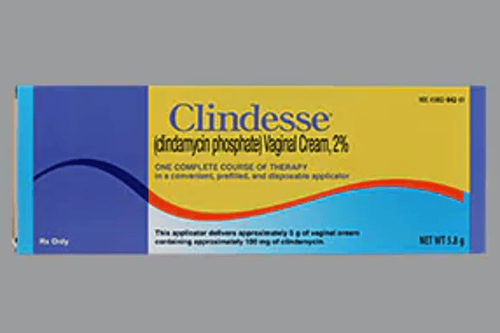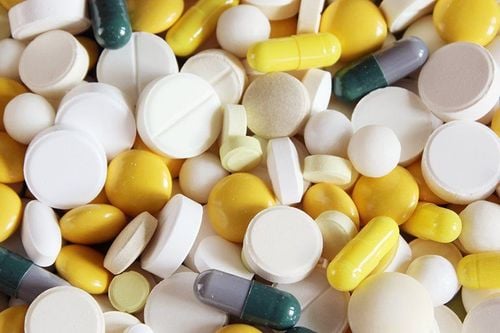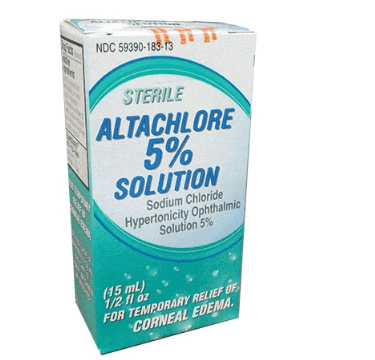This is an automatically translated article.
Thendacin medicine has the main ingredient Clindamycin, which belongs to the group of anti-parasitic, anti-infective, anti-viral and anti-fungal drugs. The following is information about Thendacin 450's uses, dosage and precautions when using Thendacin 450.
1. What are the uses of Thendacin?
Thendacin drug with the main ingredient is Clindamycin (in the form of Clindamycin hydrochlorid) 450mg, prepared in the form of film-coated tablets and packed in boxes of 2 blisters, 5 blisters and 10 blisters x 10 tablets.
Thendacin 450 is indicated for use in the following cases:
Need to prevent endocarditis or to avoid infection due to transplant surgery for people who are allergic to penicillin or have had long-term treatment with penicillin; Used in the treatment of lung abscesses, severe respiratory infections caused by Streptococcus, Staphylococcus and Pneumococcus; Used in the treatment of intra-abdominal infections; Used in the treatment of bacterial infections of wounds festering due to surgery or trauma; Used in the treatment of bacteremia; Used in the treatment of postpartum fever caused by genital tract infections, severe infections of the pelvic and female genital tract such as endometritis, nongonococcal tubal abscess, pelvic cellulitis and Postoperative vaginal wound infection caused by anaerobic bacteria.
2. Dosage and how to use Thendacin
Dosage and way of taking Thendacin as follows:
2.1. Dosage For adults use 150-300mg / time every 6 hours or 450mg / time every 6 hours, in case of severe infection; For children use 3-6mg/kg body weight every 6 hours; For children under 1 year old or weighing less than 10kg, use oral solution with a dose of 37.5mg/time every 8 hours; For the prevention of endocarditis or bacterial infection due to transplant surgery: Use 600mg or 10mg/kg for adults, 1-2 hours before surgery and 300mg or 5mg/kg orally 6 hours later during surgery; For the treatment of postpartum fever caused by genital tract infection: If fever but no clinical signs, use Amoxycilin and clavulanic acid; If fever persists for more than 48 hours due to Mycoplasma, use clindamycin 300 mg x 1 time every 8 hours or use 500mg erythromycin if fever is caused by Ureaplasma until fever is gone.. 2.2. Dosage Patients take the drug orally and take it with a full glass of water.
3. Notes when using Thendacin
3.1.Contraindications Do not use Thendacin for people who are hypersensitive to any of its ingredients.
3.2. Side effects Clindamycin component in Thendacin drug causes a high risk of pseudomembranous colitis, because the toxin of Clostridium difficile increases excessively. This phenomenon will occur when the bacteria normally present in the intestines are destroyed by Clindamycin, especially in elderly patients and people with impaired kidney function. Less commonly, some patients with pseudomembranous colitis can progress to severe, severe, even fatal. Symptoms of pseudomembranous colitis are abdominal pain, defecation, fever, mucus and blood in the stools, when rectal examination shows yellowish white patches on the colonic mucosa. Digestive disorders with common symptoms are nausea or vomiting, abdominal pain, bowel movements caused by clostridium difficile. Less commonly, urticaria occurs, if intramuscular injection, there is a reaction at the injection site or thrombophlebitis after intravenous administration. Very rare cases were anaphylaxis, reversible eosinophilia and neutropenia, pseudomembranous colitis, esophagitis, reversible hepatic transaminase elevations. 3.3. Precautions Use with caution in patients with a history of gastrointestinal disease, especially colitis, should be discontinued when diarrhea or colitis occurs; Caution should be exercised in middle-aged or elderly female patients because of the risk of severe diarrhea or pseudomembranous colitis; With caution in patients with a history of allergies; It is necessary to periodically check liver and kidney function and blood count in patients on long-term treatment and in children; Use with caution in patients with a history of colitis; Dosage adjustment and periodic monitoring of liver enzymes are recommended for patients with severe hepatic impairment; Use caution when using for pregnant women, use only when absolutely necessary; The drug is excreted in breast milk, so breastfeeding should be avoided while taking the drug; There are no adequate studies on whether the drug affects the ability to drive and use machines. 3.4. Drug interactions Drugs can cause interactions when used together with erythromycin. Thendacin medicine has the main ingredient Clindamycin, which belongs to the group of anti-parasitic, anti-infective, anti-viral and anti-fungal drugs. The drug is indicated for the treatment of certain infectious diseases. To ensure the effectiveness of use and avoid unwanted side effects, you should carefully read the instructions for use, and consult a doctor, professional pharmacist.
Follow Vinmec International General Hospital website to get more health, nutrition and beauty information to protect the health of yourself and your loved ones in your family.
Please dial HOTLINE for more information or register for an appointment HERE. Download MyVinmec app to make appointments faster and to manage your bookings easily.













